Sleep Clinic
THANC Sleep Clinic
The Sleep Apnea and Sleep Disorders Clinic is a multidisciplinary clinic which is staffed by clinicians specializing in Sleep Disorders from a variety of disciplines, such as Otolaryngologists, Head & Neck Surgeons, Pulmonologists, Neurologists, Oral & Maxillofacial Surgeons, Psychologists, Internal Medicine Specialists, Paediatricians, Critical Care Medicine Specialists. The Specialists work closely with each other to provide comprehensive treatment for patients who suffer from a range of sleep disorders including snoring and sleep apnea.
What is a Sleep Disorder?
Sleep disorders are conditions that impact the quality, duration and timing of your sleep. This impacts how effectively you have rested during your sleep. The common Sleep Disorders are:
Snoring
Sleep Apnea
Insomnia
Narcolepsy
Restless leg syndrome
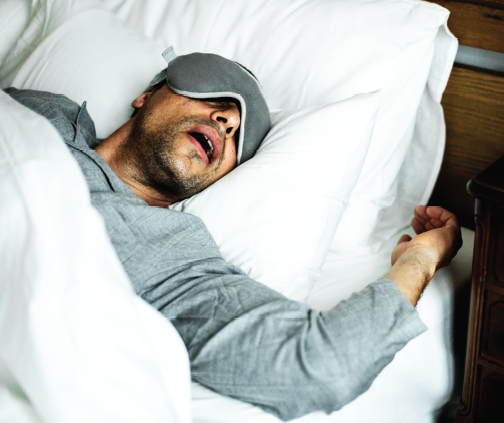

How do I know if I might be suffering from Sleep Apnea?
Sleep Apnea is a potential sleep disorder in which breathing repeatedly stops and starts. Obstructive Sleep Apnea happens when your upper airway becomes blocked many times while you sleep, reducing or completely stopping airflow. This pattern can repeat itself 5 to 30 times or more each hour all night, thereby making it hard to reach the deep restful phases of sleep.
Symptoms to look out for Sleep Apnea
Loud or frequent snoring
Choking or gasping while you sleep
Morning headaches
Daytime sleepiness or tiredness
Trouble concentrating
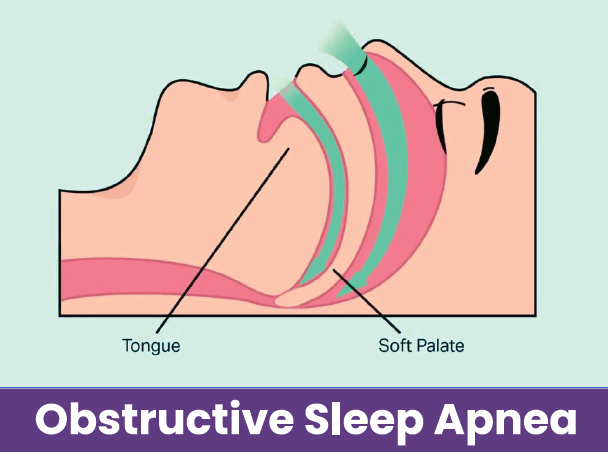
You are at a higher risk of Sleep Apnea if you are:
Overweight
Hypertensive
Male – Age over 40; Neck size of 17 inches or more
Female – Age over 50; Neck size of 16 inches or more
A Smoker
Family history of Sleep Apnea
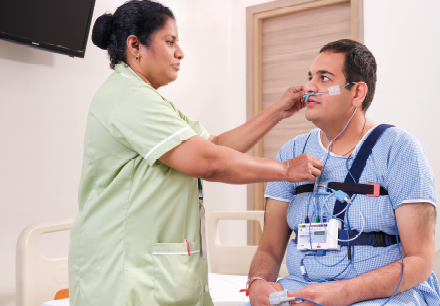
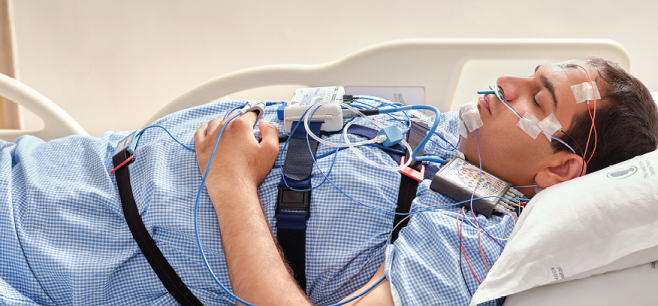
What are the implications of untreated Sleep Apnea?
High Blood Pressure
Heart Attack
Obesity
Depression
Heart Rhythm Abnormalities

How are Sleep Disorders Diagnosed?
Sleep Apnea Testing:
Based on the symptoms and history of your sleeping patterns, a specialist might recommend an overnight sleep study known as Polysomnography. This test monitors your sleep, involves sensors that monitor your heart rate, breathing, blood oxygen levels, brain waves and more. This test is considered as the gold standard for diagnosing Sleep Apnea.
Sleep Lab at THANC Hospital
At THANC, we have a dedicated room for sleep study, that is comfortable and designed to have a restful sleep while our medical team monitors your sleep patterns. This is followed by diagnosis and treatment plan by our Sleep Specialist, who will ensure that best medical outcomes are achieved.
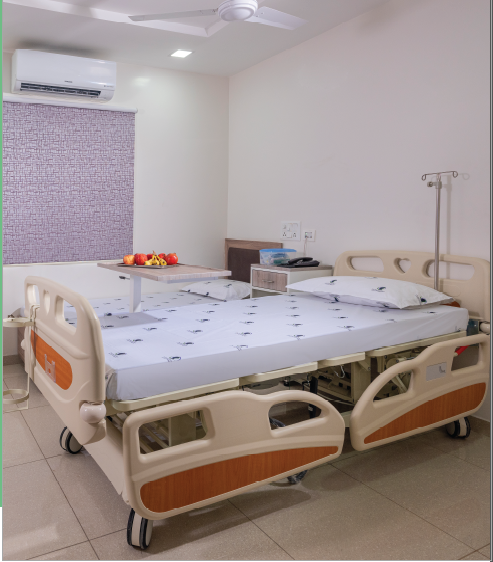
What we monitor during a Sleep Study

These measurements are recorded on a continuous graph throughout the night by trained technicians to identify transitions between sleep stages. Any disruptions like sleep apnea, limb movements, or other sleep disorders will also be observed. This will help design a plan for treatment and lifestyle management.
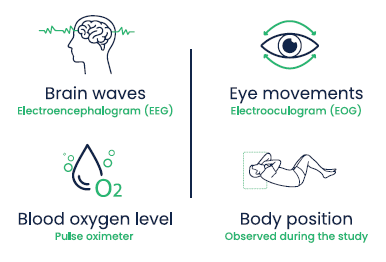
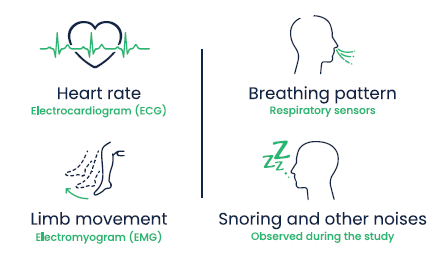
These measurements are recorded on a continuous graph throughout the night by trained technicians to identify transitions between sleep stages. Any disruptions like sleep apnea, limb movements, or other sleep disorders will also be observed. This will help design a plan for treatment and lifestyle management.
Post-Study
Removal of sensors and electrodes.
Analysis of data by Sleep Specialists or Physicians.
Generation of a detailed report highlighting sleep patterns, disturbances and any potential sleep disorders diagnosed during the study.
Follow-Up and Treatment Recommendations
- Consult with us to discuss the results.
- We develop a treatment plan if sleep disorders are identified.
- Recommendations for lifestyle changes, therapies or medical interventions to improve sleep quality.
Departments
Special Clinics
Quick Links
Contact Us
-
No.747, Poonamallee High Road,
Alagappa Nagar, Kilpauk,
Chennai – 600 010.
(Opp – Pachaiyappa’s College) -
Reach us at: - +91 73977 68795
- 044 4074 2000
-
For Enquiries: - admin@thanchospital.com
-
For Appointments: - appointments@thanchospital.com
-
Pharmacy: - +91 73050 99901
-
Laboratory: - +91 73050 39903
